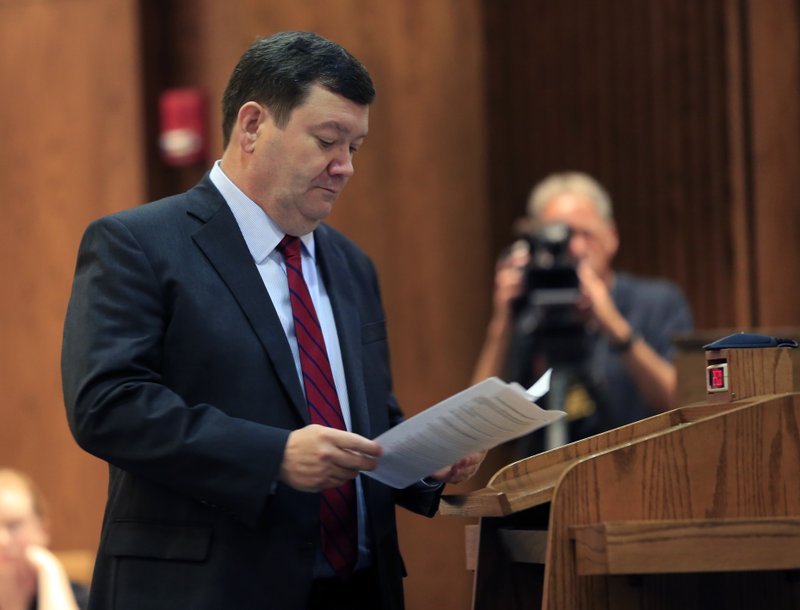WICHITA, Kan. -- Prosecutors in the U.S. attorney's office in Kansas City, Kan., improperly listened to recorded communications between inmates and their defense attorneys and willfully violated court orders during an independent investigation of the systemic practice, a judge said in a ruling that threatens to upend hundreds of federal convictions and sentences.
U.S. District Judge Julie Robinson in a 188-page decision handed down late Tuesday also held the U.S. attorney's office in Kansas in contempt of court, saying she would impose monetary sanctions against the government as punishment for violating orders to preserve evidence and turn over documents to the court-appointed special master investigating prosecutors' use of video and phone recordings at the privately run Corrections Corporation of America detention center in Leavenworth, Kan.
Her ruling also cited the "dysfunction and strife" in the U.S. attorney's office in Kansas City, detailing a culture in which prosecutors recorded their conversations with others from the office and kept files and notes at home. Several managers had repeatedly sought to address abusive prosecutorial practices in that office.
"The record illustrates how deeply the Kansas City prosecutors distrusted current and past management, to the point of insubordination," the judge wrote, noting prosecutors either failed to tell managers that they had the recordings or failed to follow management's advice, such as not listening to the calls.
A spokesman for U.S. Attorney Stephen McAllister said his office is evaluating the court's findings and conclusions of law, and is not able to comment further. Federal Public Defender Melody Brannon declined to comment.
Former U.S. Attorney Barry Grissom said in an emailed statement that he hopes the Justice Department will work with the court to resolve this as quickly as possible so they can get back to keeping Kansas residents safe without distractions. Grissom, a Democrat, is running for the U.S. Senate seat in Kansas.
The judge set up what she termed a "road map" to review petitions from defendants claiming violations of their Sixth Amendment rights to counsel. At least 110 such petitions have been filed to date, and the federal public defender has told the court that more are coming.
A Section on 08/15/2019

